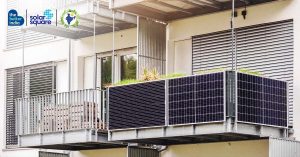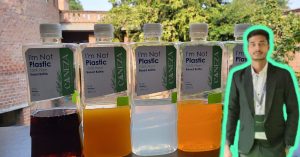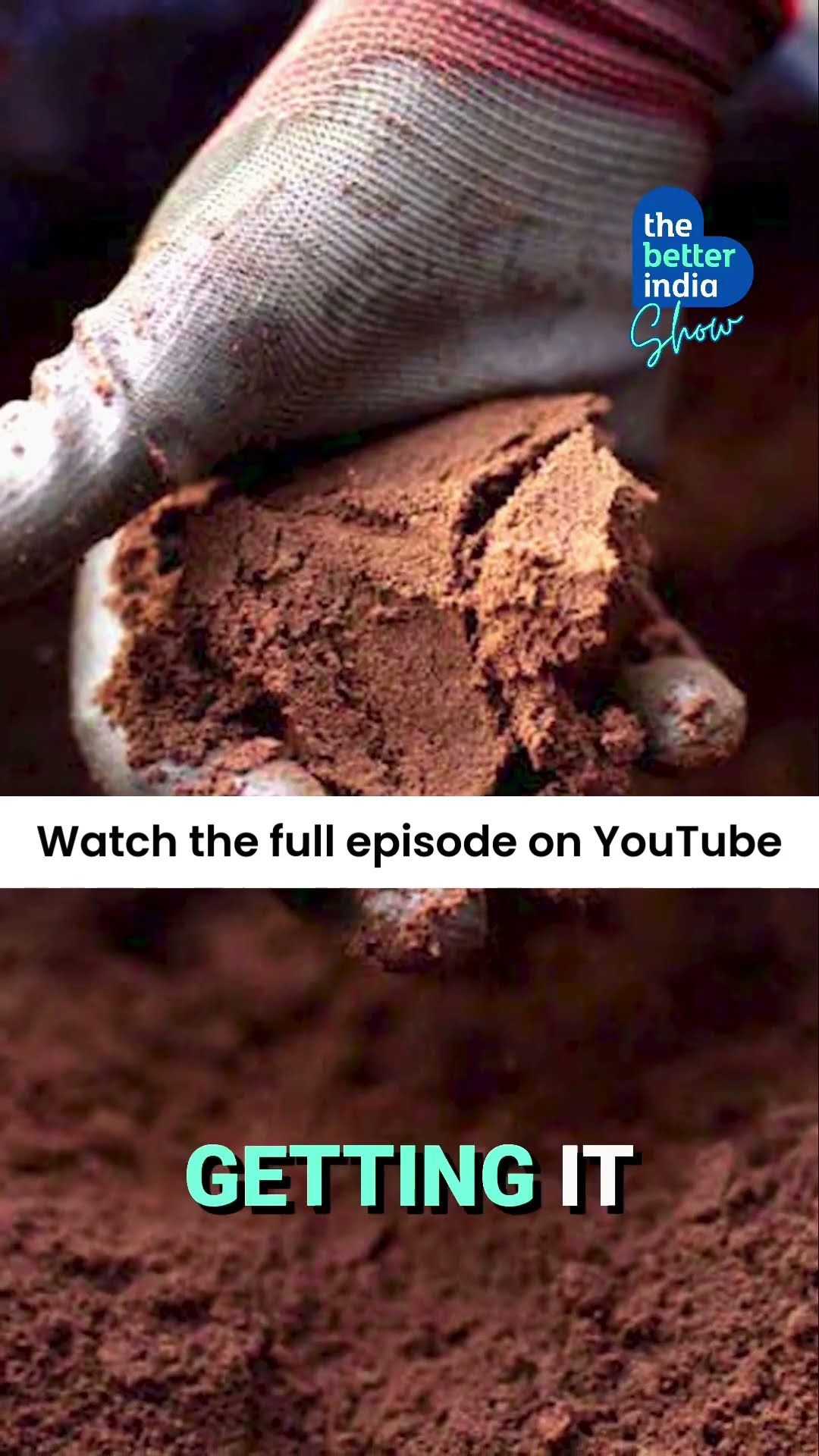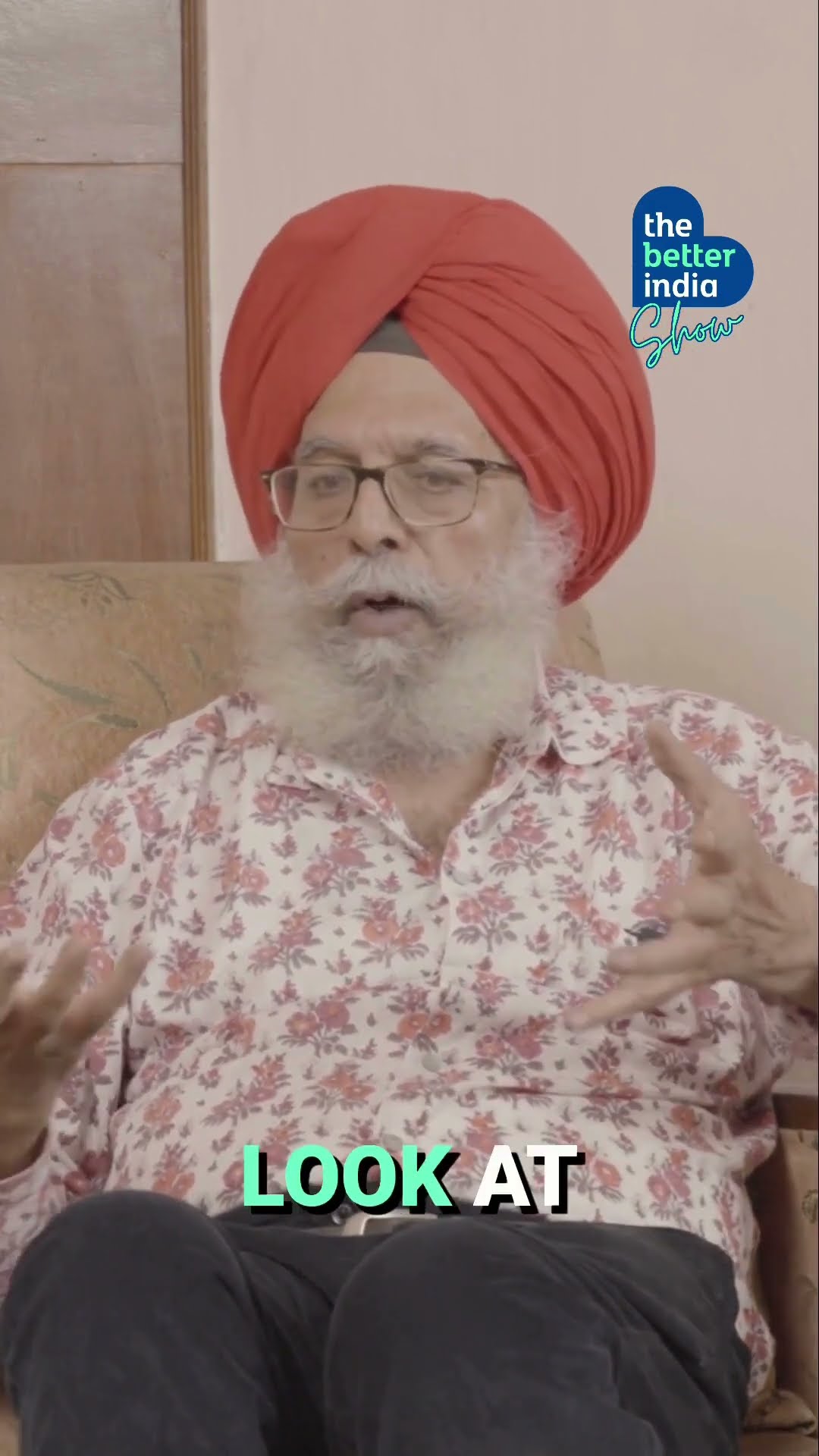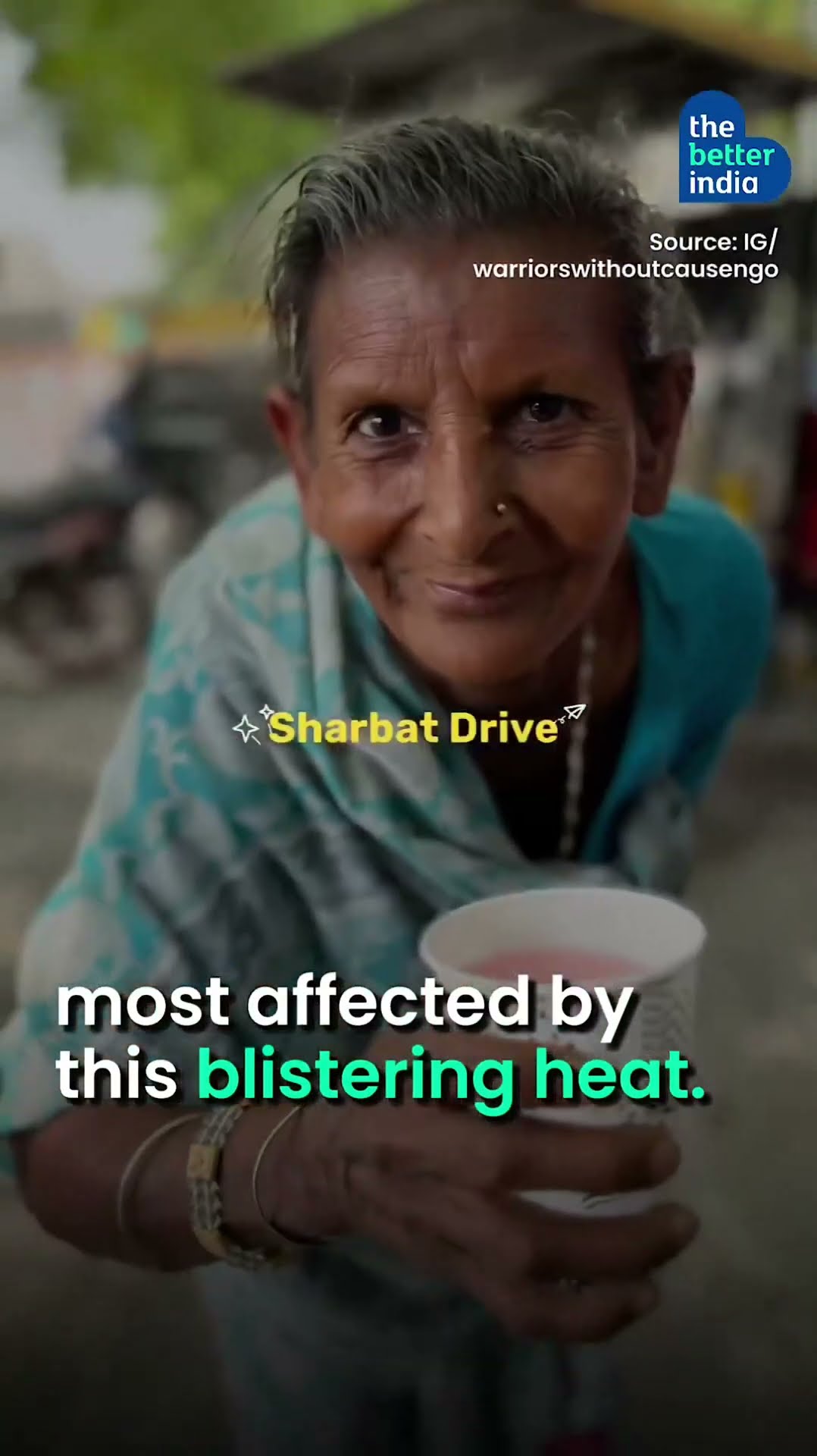Couple Wins Patent For Biodegradable ‘Leather’ Made From Areca Palm
Karnataka's Suresh S R and his wife Maithili started Bhoomi Agri Ventures to turn areca palm leaves and husk into eco-friendly vegan leather.
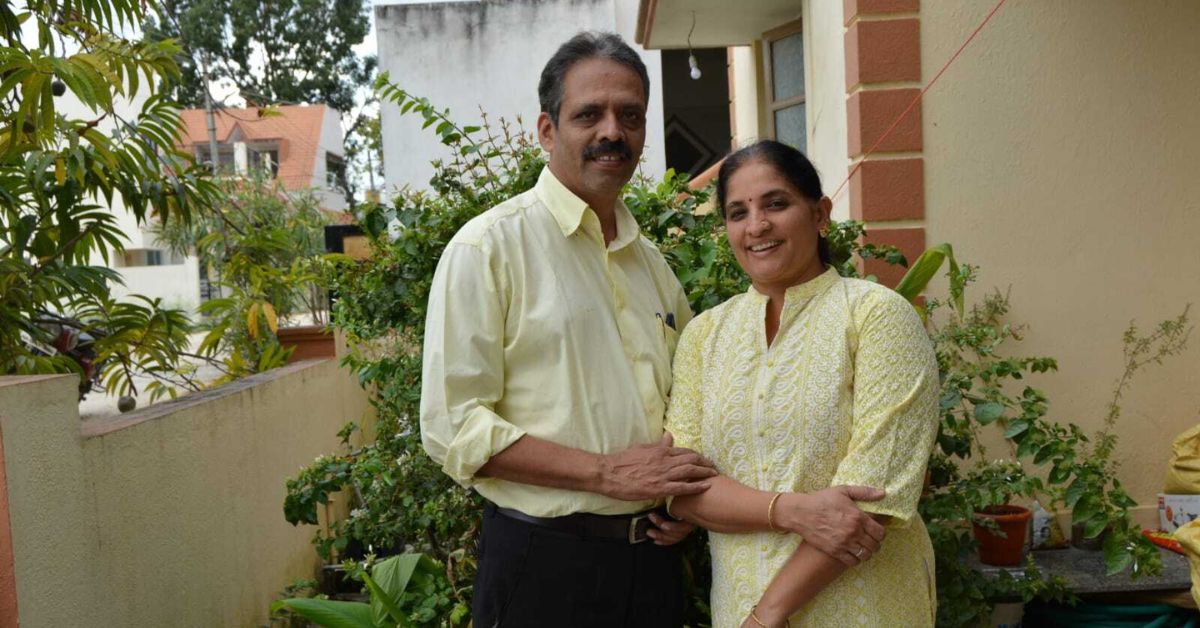
Did you know that, on average, making natural leather results in 17 kg of CO2 emissions per square metre? This means that each bag or pair of shoes contributes to the release of several kilograms of carbon dioxide during production.
This raises the question of whether we really need animal leather luxury when it comes at such an environmental cost. Despite the industry’s continued success, many innovators are now offering eco-friendly and sustainable alternatives to traditional leather.
Among these innovators is Suresh S R, a 50-year-old areca palm grower from Shivamogga, who has developed a 100 percent natural, chemical-free vegan leather made out of areca leaves and husk.
“I wanted to do something innovative and good for the environment because we take a lot from nature and give back nothing. So I thought of working towards reducing the massive amount of carbon emission caused by the leather industry,” Suresh, who is the co-founder of Bhoomi Agri Ventures tells The Better India.
‘Growing up in nature motivated me’
Suresh was born in a small town in Karnataka called Sringeri. “Coming from an agricultural family, growing up, all I saw around me was nature. I remember running around in the farms and feeling blissful,” he says, adding that areca palm trees were abundant in his town.
Areca plant is a primary commercial crop in the southern districts of Karnataka, covering more than one lakh hectares of land. “It was so common for us to spot them growing around the house and in the neighbourhood. I would tear its leaves and play with it,” he says.
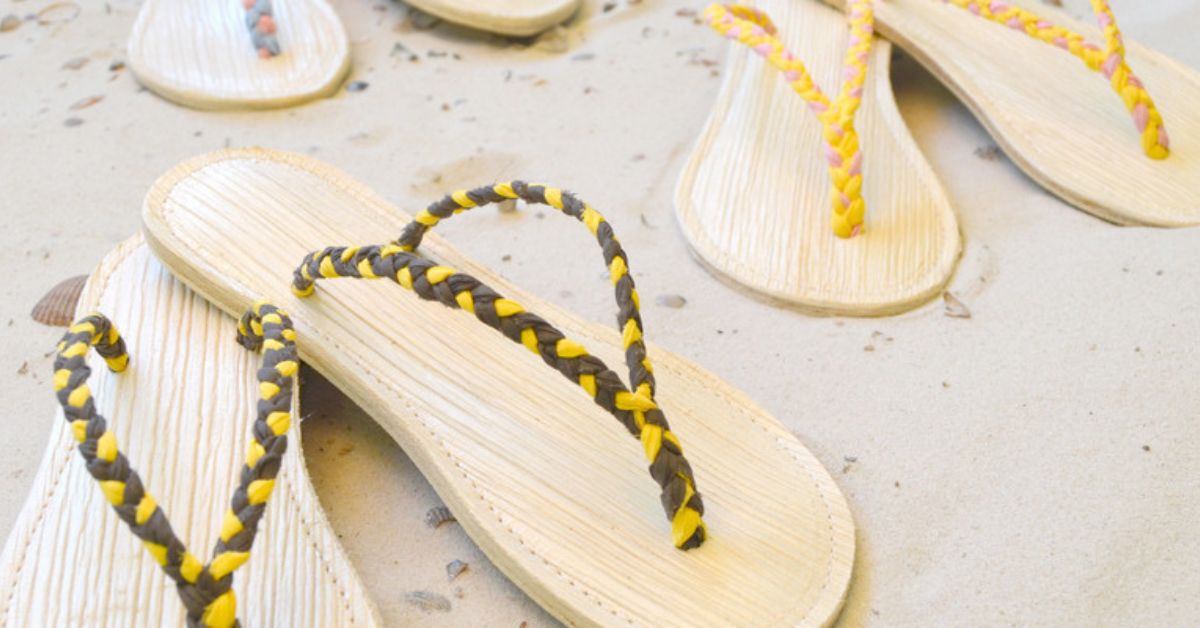
Suresh moved to Shivamogga in 1992 and started a business in 1995. He began a venture dealing with computer sales and services, along with software development. “One notable project involved creating software for primary land development banks across Karnataka. We successfully implemented the software in around 100 branches, and it continues to run successfully after 28 years,” he informs.
But after completing many years in the business, he yearned to explore new pastures.
“While I wanted to try something innovative and nature-friendly, I was not sure where to look for inspiration. But you know how the saying goes; you find good things when you’re not looking! Well, that was precisely what happened to me. I stumbled upon how people were making fibre-based leather,” he shares.
So deciding to pursue crafting vegan leather, he started searching for a suitable plant. That’s when his good old childhood pal came to his rescue. “I recalled how areca palm leaves became sturdy when dried in the sun and soaked in water. I knew there was potential in the direction I was heading,” he remarks.
Since Suresh had zero experience in the field, he started looking online to check if someone was doing something similar.
“This is when I discovered Tjeerd Veenhoven, based in the Netherlands, who shared similar interests. We collaborated to bring this idea to life, and he became my mentor during that period. He helped me understand the process of converting plants into leather and played a crucial role in the research and development of the fibre,” he shares.
“Presently, I export the plant-based leather I produce in India to him in the Netherlands, where he transforms it into a diverse range of products,” he adds.
So finally in 2020, Suresh co-founded Bhoomi Agri Ventures along with his wife Maithili, and even got a patent for the technology.
Vegan, chemical-free and biodegradable
Suresh informs every year, they get a yield of approximately 4,000 to 4,500 naturally shed leaves from a single hectare. So there is no need to cut any part of the tree to obtain the raw material; it naturally sheds.
Talking about how the fibre is extracted from the plant, he says, “We harness the beneficial qualities of areca leaves, which have two types of fibres. We extract these fibres and also utilise the husk. Previously, people would discard the husk by burning it in gardens or along roadsides. I thought, why not repurpose it instead?” he says.
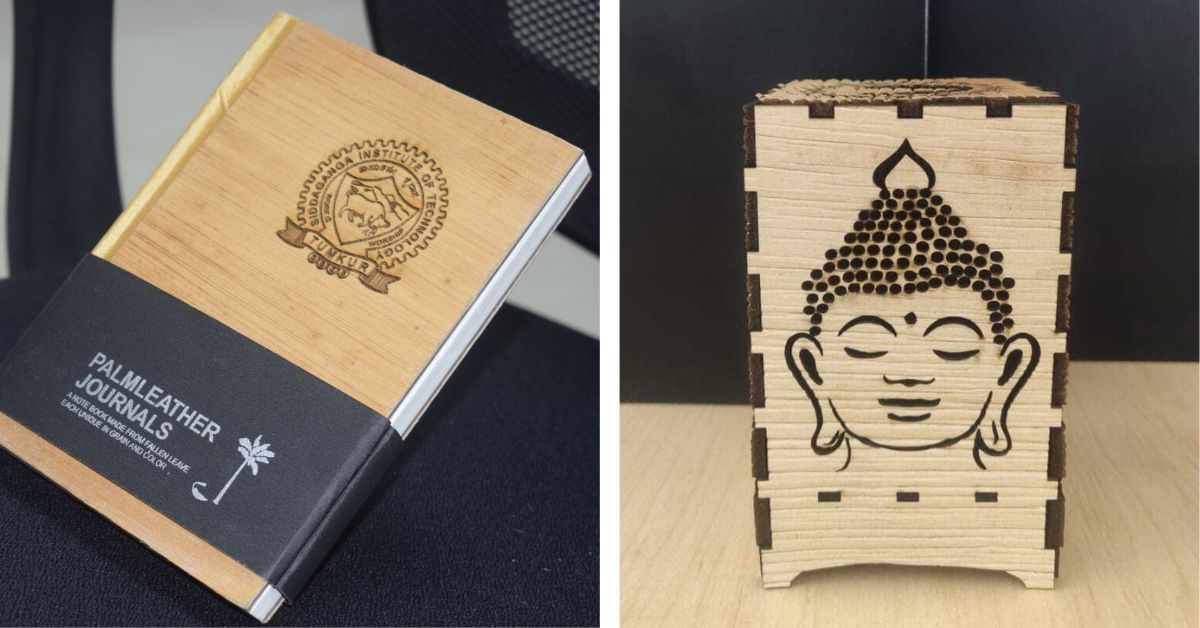
This extracted fibre is dried and then processed to make vegan leather. “We create our products from this leather — essentially turning what was once considered waste into wealth. In the past, people used these leaves as firewood, but now they’re being repurposed into plates and various other items,” he informs.
While Suresh had cracked the code for using areca, he came across an issue.
“The sheet is typically around one and a half feet in length and one and a half feet in width. Due to this size limitation, we couldn’t create many things from a single sheet. The sheet needed to be elongated, allowing for versatile use across various areas,” he shares.
Last year, in May-June, during the G20 Summit, he was invited by the Government of India invited to set up his stall in Hyderabad.
“And right beside us was the ICR Calcutta stall. They mentioned having a specific gum for the issue we were facing. So I conducted extensive research on fibre and provided them with all the necessary data and raw materials,” he shares, adding that he developed a biodegradable gum with ICR Kolkata and bought the rights from the institute.
Apart from their eco-friendly vision, Suresh says they also focus on uplifting marginalised communities in the region. “I connect with the SHGs in and around Shivamogga and my hometown Sringeri to train women in extracting the fibre and sewing different products,” he says.
So far, he has been working with four Self Help Groups (SHG), making products, such as sandals, book covers, vanity bags, pen stands, etc, with vegan leather.
“My customer base is spread across India and usually consists of businesses and hotels. The majority of the buyers are from Karnataka and Maharashtra. While most of them are businesses, the products are available to buy in retail and through our website,” he adds.
D S Ramesh, who works in a pharma company, says he was on the lookout for useful and eco-friendly products when he came across Suresh’s venture. “Typically, you will only find products made with plastic or leather in the market. But when I found Suresh’s company, I purchased pen stands in bulk, and all my friends and clients loved it. The products are of great quality, durable, and nature-friendly,” he adds.
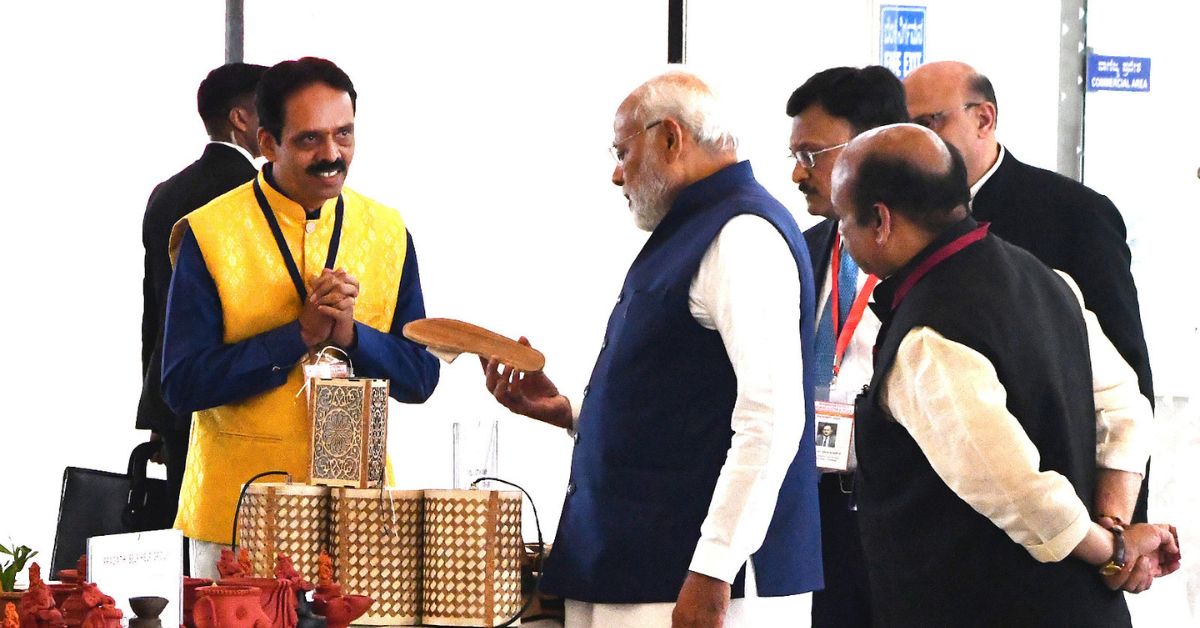
Talking about the need for these products, Suresh explains, “Our vegan leather is comparable to traditional animal leather in terms of properties. Remarkably, while producing one square metre of conventional animal leather demands approximately 23,000 to 24,000 litres of highly polluted water, resulting in around 17 kg of carbon emissions, our alternative requires only 500 to 600 litres of water for the same area. Furthermore, our vegan leather is reusable.”
He concludes by saying, “Why go for a highly toxic product that harms nature when there is a better alternative available? This company and this leather is my way of giving back to the environment.”
(Edited by Pranita Bhat; All pictures courtesy: Suresh S R)
If you found our stories insightful, informative, or even just enjoyable, we invite you to consider making a voluntary payment to support the work we do at The Better India. Your contribution helps us continue producing quality content that educates, inspires, and drives positive change.
Choose one of the payment options below for your contribution-
By paying for the stories you value, you directly contribute to sustaining our efforts focused on making a difference in the world. Together, let's ensure that impactful stories continue to be told and shared, enriching lives and communities alike.
Thank you for your support. Here are some frequently asked questions you might find helpful to know why you are contributing?




